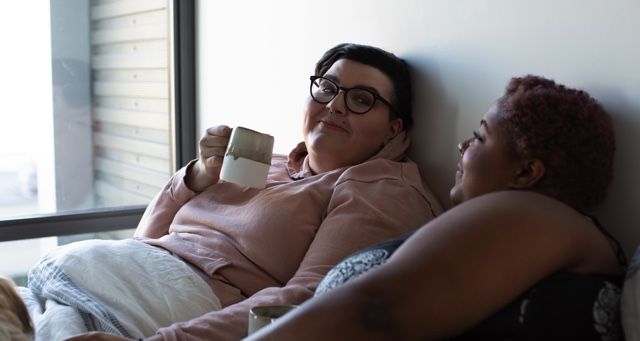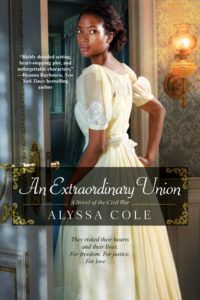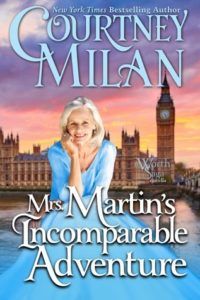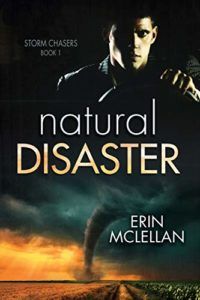
What Happy Endings Do We Want to See in Romance in 2020 and Beyond?
I’m always on the quest to read the most satisfying romance novels. Ones that give me a bone-deep sense of hope that true love is possible. Books that show love is the way to everything that’s good. There are levels of success when it comes to happy endings in romance. First, there are endings that satisfy my personal reading preferences. Then there are endings I think demonstrate positive growth in the genre. Finally, endings can aim at a broad moral good.
Ultimately, all happy endings are welcome, and a romance doesn’t have to solve the world’s problems to be worthy. Sometimes you want to witness the power of love; sometimes you want to smash the dolls together and make them kiss. That said, what makes the very best romances so special?
Playing Catch-Up
Before getting too far afield, I want to note of the state of romance. The Ripped Bodice’s annual diversity report is telling, and also just one facet of the problem. Romance needs to be more inclusive regarding the stories it tells and the authors who get to publish those stories.
Let’s not burden the more inclusive romances with needing the most progressive happy endings. First let’s make sure everyone’s getting happy endings. There’s nothing particularly realistic or progressive about the romances we see on television at the holidays, where earnest, goofy, overwhelmingly white people share a single, close-mouthed kiss at the end, as snowflakes fall over a picturesque town square. Nonetheless, there should be movies and books like that for everyone, written by and centering queer people, people of color, fat people, disabled people, old people, the list goes on. While we’re leveling the playing field, we can also keep pushing the vision for the happily ever after.
Historical Trends in the Genre
I’m often thinking about how romances uphold or subvert capitalism, which is how you know I’m really fun at parties. In so many ways, the two seem inextricably tied. There’s so much history about how romance and marriage and money are connected. It’s not easy to liberate narratives about love from systems of wealth.
Romance has also cleaved to 20th century feminist movements. Historical “bodice rippers” of the 1970s, a trend that tracked to the aspect of second wave feminism we call “the sexual revolution,” depicted female sexual pleasure. It seems like a given, that romance should center pleasure for its characters, but let’s acknowledge strides we’ve made.
Third wave feminism had a strain of individualism running through it, sometimes commodified or reduced to “girl power.” While romances have often had female main characters pursuing goals other than marriage, I think the romances coincident with the third wave show a desire for power in the workplace and spending power in addition to sexual pleasure and long-term relationship happiness. This was in the service of demonstrating that women are more than just their romantic relationships.
This trend is laudable in some ways. It’s taking the independent spirit we value in women, and squaring it with a romantic arc that by definition is not independent. Still, I tend not to be very satisfied by romances if the plot has a whiff of “I need to complete the project so I get the big promotion.” Am I proud of this woman’s accomplishments, or do I want to ask her why she’s working her fingers to the bone for some corporation that will never love her back?
Decoupling Romance From Capitalism
If I want to see romance less tied to capitalism, and I do, there are a few different ways I can see the narratives being pushed to achieve that. One way is in a queer direction. It’s been said that because capitalism relies on generational wealth, and queerness pops up unpredictably within the population, the two notions are fundamentally at odds with one another. So please, more queer love stories all around. Relatedly, there is also so much room for stories structured like romances, in that they have a central relationship with a happy ending, but aren’t necessarily about romantic love.
For any romance pairing, plenty of plots within our late capitalist hellscape that don’t necessarily condone or support it. These are narratives I often find satisfying, so I’ve aimed at identifying them here.
 Narratives of Overcoming
Narratives of Overcoming
What I have called narratives of overcoming can manifest in multiple romance sub-genres. The two main characters might fall in love amid strife. The conflict that keeps them from their happy ending is not undealt-with baggage, betrayals, or miscommunications. The external conflict necessitates prioritizing survival first, love second. Alyssa Cole’s stunning An Extraordinary Union, the first in The Loyal League series, is an example of a narrative of overcoming within the historical romance sub-genre. Fantasy romances are also a great place to see these triumphant stories: a curse is overturned, a revolution deposes a corrupt ruler.
 Narratives of Justice
Narratives of Justice
Related to the previous category are narratives where justice is dealt. I long to witness more justice in romance novels. So many M/F romance novels feature a male main character who has a lot to answer for. To get his happy ending, he has to change his heart, and often change his ways. All that is good and forward-looking, but I want to see more books that right past wrongs. A billionaire hero who finally learns to love one woman does not make up for all the gross exploitation that led him to being a billionaire in the first place. Where’s the love story of a billionaire brought to his knees no by the woman who has his heart and all the people he stepped on to get where he is?
The justice exacted in Mrs. Martin’s Incomparable Adventure may be on the cartoonish end of the spectrum, but I’ll take cartoon justice over none any day. This is a sweet, queer novella that is like reading a cleansing fire.
 Narratives of Belonging
Narratives of Belonging
I’m a sucker for that “found family” feeling. The hope to find the place where one really belongs is a welcome side plot in a romance. A romance I read in 2019, Natural Disaster, had a wonderful journey for one of the main characters, who was seeking community and fell in love in the process. Who wouldn’t want to join the ranks of a group of tornado chasers earnestly trying to save the lives and livelihoods of the people on their weather map?
 Narratives of Artistic Achievement
Narratives of Artistic Achievement
I love a romance where one character is an artist of whatever stripe. Not all art is anticapitalist by any means, but creating instead of consuming has an undercurrent of counterculture I appreciate. Creative people are sexy!
American Dreamer by Adriana Herrera is one of the best romances I read in 2019, partially because of the artistic approach Nesto took to the food he made. Food as self-expression and food as a way to connect with community were delightful aspects of this warm, wonderful novel.
I think we’ve only scratched the surface of the potential within romance. If you have more categories of satisfying narrative, or specific book recommendations for me, find me on Twitter and we can continue this discussion.





















